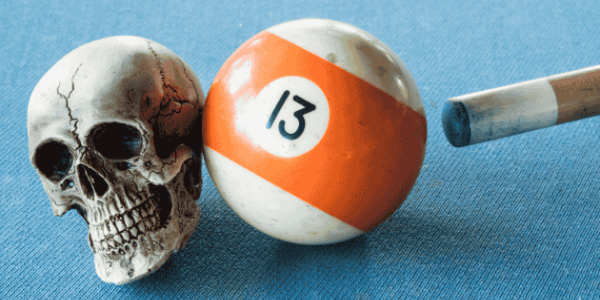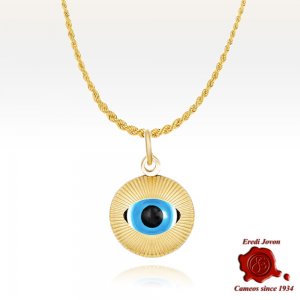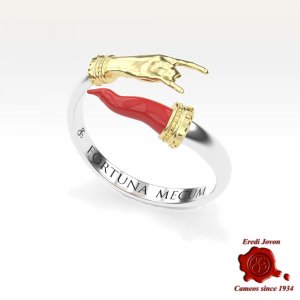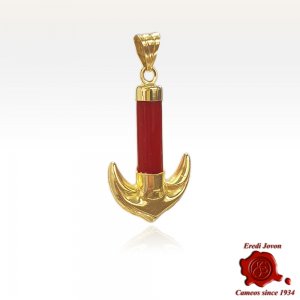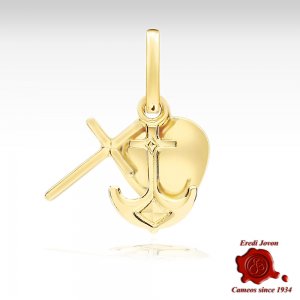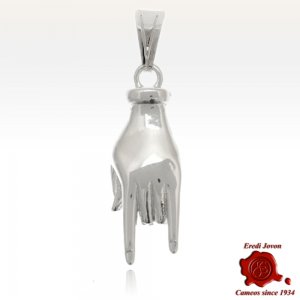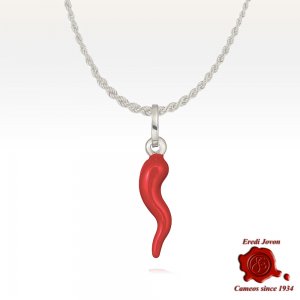Number 13 Lucky Amulet and it’s Meaning

Introduction
Why 13 brings good luck (especially in Italy)?
The number 13 divides the world: some avoid it, while others consider it a sign of good fortune. In Italy, it more often belongs to the second category. Below, we explain why—and how to turn it into a little talisman to wear. And why, elsewhere, this idea may seem almost “absurd”: in many Anglo-Saxon cultures, 13 has been a feared number for centuries (to the point that some buildings skip the 13th floor), a sign of how superstitions are cultural codes rather than “truths.”
Number 13: bad luck or talisman? It depends on where you are
- Italy – The number 13 is often seen in a positive light. It's an alter ego of the iconic cornicello. The Totocalcio football pools ticket brought the idea that ‘ho fatto tredici’ (I've made thirteen) meant a stroke of luck into the collective imagination; it is no coincidence that pop culture (comedies and sketches) has often revolved around the winning ticket.
Famous examples: the comedy “Al bar dello sport” (1983, Lino Banfi/Jerry Calà) and the episode of the fake ‘thirteen’ in “Eccezzziunale... veramente” (1982, Vanzina).
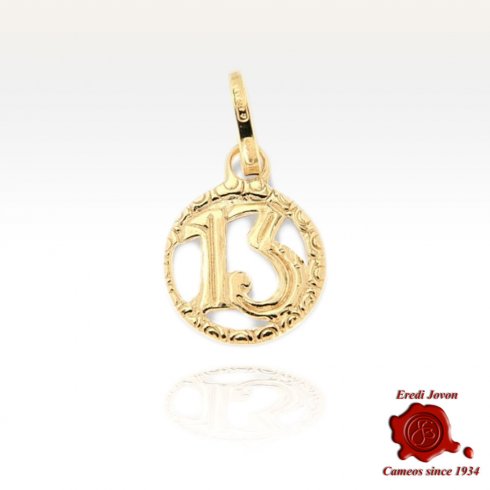
“Lucky 13” Number Charm in 18K Gold
Genuine 18 kt/750 yellow Italian gold number thirteen charm. In Italy, 13 means good luck—wear it on a chain or add it to your charm bracelet. Elegant, timeless, Made in Italy.
Shop Lucky 13- USA & Anglo-Saxon world – The number 13 is commonly considered unlucky (“Friday the 13th”), with a strong tradition in horror films; in many hotels/buildings, the 13th floor or room 13 is omitted because many guests would not like it. Several chains do away with the number 13 (or rename it). This is a reflection of “triskaidekaphobia.”
- Spain and Latin America – The “critical” day is often Tuesday the 13th (“martes 13”).
- Greece – Similar: Tuesday the 13th is feared more than Friday the 13th.
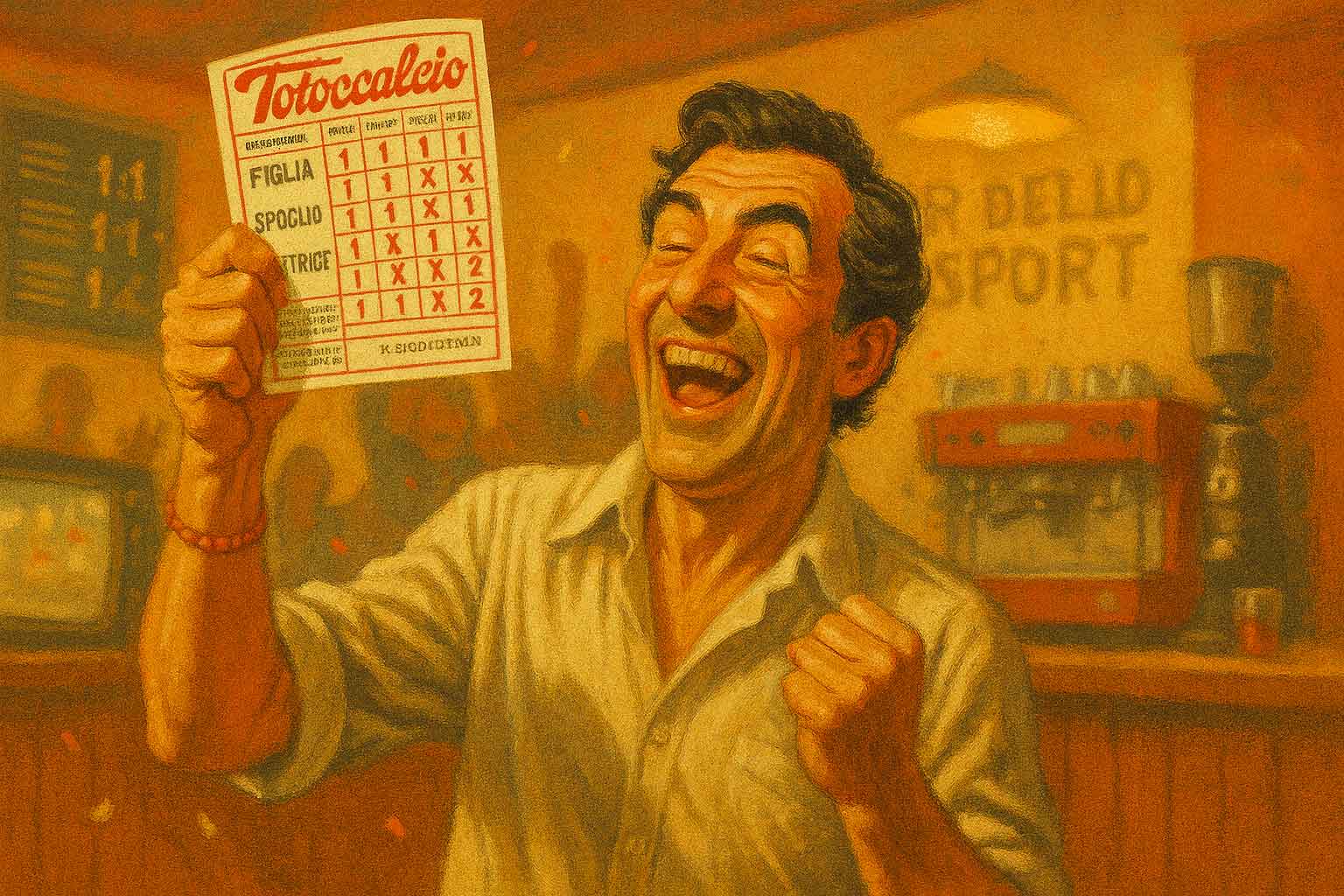
In Italy: why the 13th is lucky and the 17th is not
It has to do with soccer—and a certain Italian way of dreaming. Since the post-war period, the Totocalcio football pools have taught an entire country that ‘making thirteen’ is equivalent to changing your life; the expression has remained in common parlance. Cinema has joked about it: in addition to the examples above, as early as the 1950s there was a comedy called ‘Ha fatto 13!’ (He made 13!), which played on the misunderstandings surrounding the winning ticket.
So the number 13 has a very close meaning and similar power of the Italian gold horn.
Anecdote (made in Italy): while elsewhere people fear Friday the 13th, in Italy the traditional ‘alarm’ is Friday the 17th—so much so that it even inspired the title of a comedy, Era di venerdì 17 (It Was Friday the 17th, 1956, Mario Soldati). The popular explanation? In Roman numerals, XVII can be read as VIXI (“I lived,” therefore... no longer): a play on words that has weighed heavily on the imagination.
A shop anecdote
In the shop, a lady asked for 13 coral beads: “for tomorrow's interview.” The thread broke while we were stringing them; Gabriella smiled, threaded thirteen new ones, and said, “let's start again.” A week later, a message arrived: hired. Since then, for her, thirteen is not up for discussion.
At Eredi Jovon, we transform the number 13 into jewelry with Italian craftsmanship and customization: 13 details, 13 beads, XIII engraved—whatever you like.
As Grandma Carmela would say: To those who fear Friday the 17th, respond with thirteen smiles. Remember: numbers matter, but the heart matters more.


Free PDF — Keep the “Lucky 13” Energy
In Italy, 13 often means good fortune—think fare tredici. Continue the story with our free guide to iconic talismans: the red horn, the horned hand, the Nazar Eye, and more.
Download the EbookInformation
Last post
-

Love Hope Faith Amulet | Meaning and Tradition
Discover the meaning of the Faith, Hope & Charity charm: a timeless amulet to wear every day. A jewel that tells...
-

The Four-Leaf Clover: the rare gift that dares to speak to the heart
Discover the true meaning of the four-leaf clover and its Italian twist with the lucky cornetto charm—a rare story...
-
